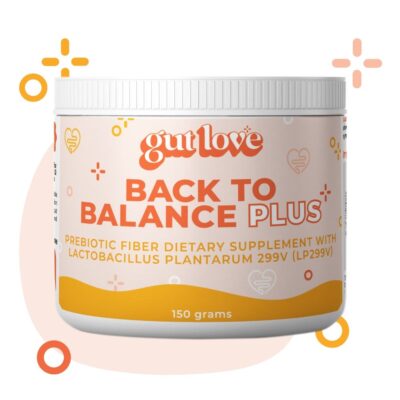IBD doesn’t only cause gut issues. Both Crohn’s and Ulcerative Colitis can cause a range of extraintestinal manifestations, from skin issues to joint pain. We’re going to focus on the latter in this blog.
Approximately 40 – 50% of people with IBD experience pain in their joints at some point in their lives – it’s a common complaint that we see all the time. In fact, it’s the most common symptom of both Crohn’s and Colitis, other than gut issues.
Despite this, many people with IBD feel at a loss when it comes to their joint pain. Some gastroenterologists purely focus on gut problems and overlook the secondary symptoms of IBD. But if you’re struggling with joint pain and inflammation, you’ll know it’s impossible to overlook! It can affect your whole day, mood, and quality of life.
You don’t have to suffer in silence. Understanding the link between IBD and joint pain, and how to manage your individual symptoms is key for minimizing it. And getting this valuable relief is 100% possible with the right support and knowledge.
What is joint pain and arthritis?
Let’s go over joint pain and arthritis definitions first of all.
There are three different types of joint pain:
- Arthralgia, which is pain in joints
- Arthritis, which is pain and swelling in joints
- Enthesitis, which is inflammation surrounding tendons and ligaments
The majority of IBD sufferers experience pain in their spine, and the joints in their arms and legs.
Joint pain and arthritis are similar, and it can be tricky to distinguish between the two. The three types of IBD related arthritis are:
- Peripheral Arthritis
This pain may shift from one joint to another, and affects the arms, legs, elbows, wrists, knees, and ankles. It’s a very common cause of joint pain that often coincides with gut symptoms. Peripheral arthritis causes no lasting damage.
- Axial arthritis
Axial arthritis is pain in the lower spine and sacroiliac joints. You may have heard it be called spondylitis or spondyloarthropathy. Interestingly, this type of pain may occur long before a person experiences gastrointestinal or digestive problems. Axial arthritis can be serious and lead to fusing of the spine.
- Ankylosing Spondylitis
This is more rare in IBD patients overall, but more common in people with Crohn’s. Ankylosing Spondylitis causes inflammation in the spine and sacroiliac joints, but it can also impact the eyes, lungs and heart valves. Long-term damage is possible.
It’s important to keep in mind that these forms of arthritis are different from other forms that you may be familiar with, such as osteoarthritis and rheumatoid arthritis. Osteoarthritis is a normal aspect of aging, and rheumatoid is an autoimmune condition.
That’s not to say you can’t have these conditions if you have IBD, but they are not related to each other.
The connection between IBD and joint pain
The exact link between IBD and the join point is somewhat inconclusive.
One theory is that the immune system causes the inflammation by overproducing proteins called TNFs, or tumor necrosis factors. This correlates with the theory that Ulcerative Colitis and Crohn’s can be autoimmune conditions, where the immune system attacks the digestive system or colon.
Another hypothesis is that joint pain and IBD can be caused by genetic factors. It’s also believed that IBD can be genetic in some patients.
Whatever the cause, there’s no doubt that a joint-gut axis indeed exists and sadly features in the lives of a large proportion of IBD sufferers.
Tips to manage IBD joint pain
Doctors commonly recommend NSAIDs such as ibuprofen and aspirin to help manage joint pain in the short term. However, as you most likely already know, nonsteroidal anti-inflammatory drugs are not recommended for those with IBD, as they can irritate the digestive system.
IBD patients may be offered other drugs such as steroids or immunosuppressive medications, but there is, unfortunately, no guarantee that these will work.
However, the good news is that there are several home remedies that you can try to provide some relief from IBD-related joint pain.
With our clients in both our individual and group program, we recommend several strategies to help reduce joint pain. This often includes targeted evidence-backed supplementation, dietary modifications, and treating deficiencies that could be driving joint pain.
Outside of these longer-term strategies. Some of our other favorite immediate relief strategies include:
- Heat pads
- Cold compresses
- A relaxing warm bath or shower
- Topical peppermint essential oil
- Gentle exercise such as yoga
- Stretching exercises
These are all worth a try and can be done from the comfort of your own home. But there are also ways to help prevent joint pain from IBD altogether…
Preventing joint pain from IBD
Although a definitive cause for IBD and IBD joint pain is unknown, what we do know is that an IBD flare-up is most often when joint pain occurs and is at its most intense.
All four of our registered dietitians within our practice here at Crohn’s and Colitis Dietitians have IBD, so we know first hand what can cause an IBD joint pain relapse, and we know exactly how frustrating and debilitating it can be.
The ultimate goal is to stay ahead of your IBD flare-ups, so that you can reach symptom remission, including all those extraintestinal manifestations.
This will be slightly different for every IBD sufferer, but keeping your Crohns or Colitis in check through diet, nutrition, and stress management can all help to prevent IBD joint pain.
At Crohn’s and Colitis Dietitians, we look at your IBD and its many symptoms from a big picture viewpoint, so that you can reach symptom remission faster, and stay there longer.
We understand from both first-hand experience and from working with hundreds of patients that an effective and tailored IBD management plan is the best way to prevent joint pain from IBD, and IBD symptoms in general. Expert nutrition advice can help you to achieve this.
Get help with your IBD symptoms
If you’re looking to better manage your IBD and reach symptom remission faster, we can help. Our specialist Crohn’s and Colitis dietitians can help you get the nutritional support that you need.
Whether you join our comprehensive IBD program or opt for one-to-one support, we’re here to tell you that relief from symptoms is well within your grasp.
Book a consultation today to begin the road to IBD symptom remission.






0 Comments
Trackbacks/Pingbacks